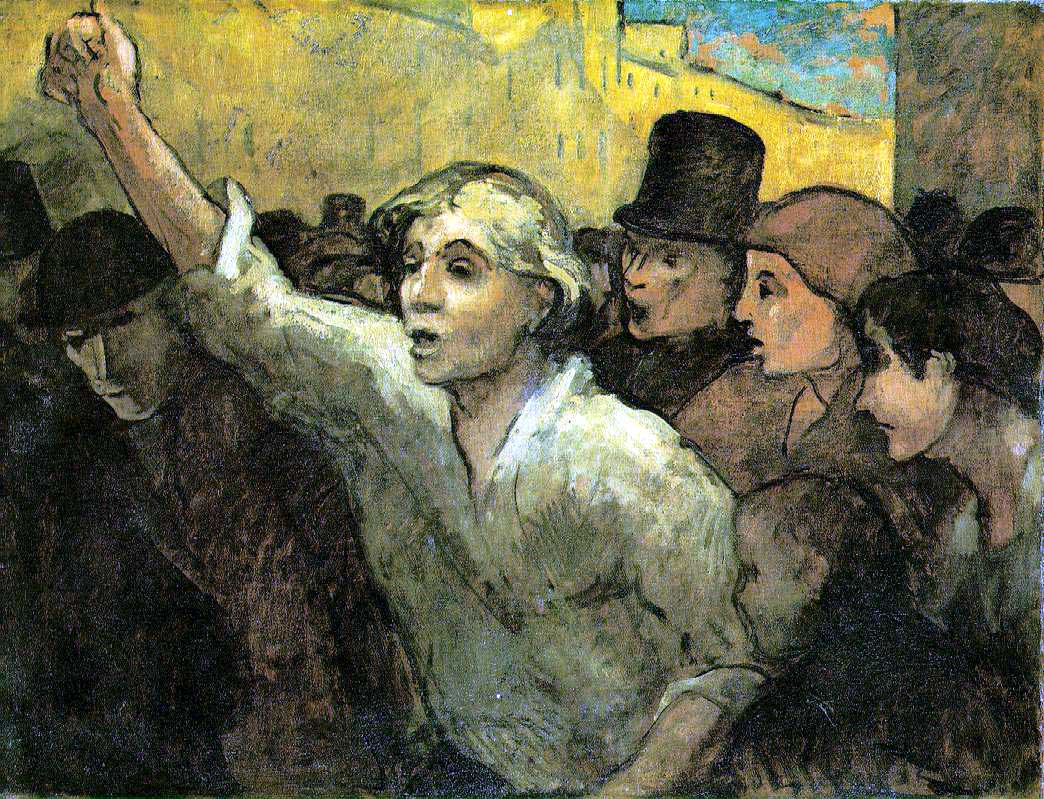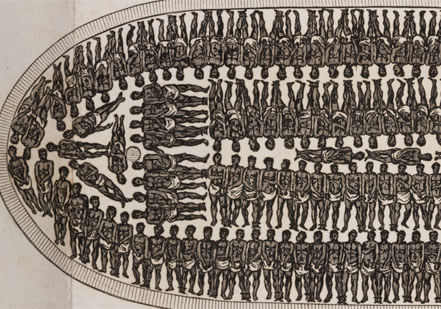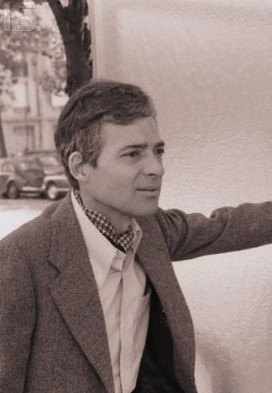Ciccariello-Maher, George. Decolonizing Dialectics. Durham NC: Duke University Press, 2017. 256 pages. ISBN-10: 0822362430. Hardcover, paperback, e-book.
“Truly to escape Hegel,” Michele Foucault warns, “involves an exact appreciation of the price we have to pay to detach ourselves from him.” Considering that price, George Ciccariello-Maher has decided that Hegel’s methodological legacy –– the dynamic movement of conflictive oppositions –– cannot be escaped but is instead “once again firmly on the table” (2).
In his newest book, Decolonizing Dialectics, Ciccariello-Maher excavates the dialectical tradition of both Hegel and Marx, and attempts to present a more combative dialectics rooted not in European hegemony, but found amidst a largely subterranean current of thought. Though Decolonizing Dialectics “is not and cannot be a book about Hegel or Marx” (10), it is most certainly a book found in their wake. Pushing the dialectic almost to the point of incommensurability, Ciccariello-Maher’s Decolonizing Dialectics is likely to make both dialecticians and decolonial theorists uncomfortable. Yet, that discomfort is preciously where Ciccariello-Maher seeks to intervene.
Ciccariello-Maher lays out two leading questions at the beginning of this project. First, can the dialectical tradition be subject to its own decolonizing Aufhebung in a way that would transcend its limitations? This question is asked against those who would discard dialectics all together, postcolonial theorists and Deleuzians alike. Second, is there an approach to dialectics that can accommodate decolonization, and specifically the questions of race, class, and nation?
As should be clear from the books opening declaration that “ours is a newly dialectical age” (1), Ciccariello-Maher’s answer to both of these questions lies in the affirmative. To understand the current conflicts and structure of the world requires a rupture of European thought, but once that rupture occurs, a modified and more combative dialectics can be named. Ciccariello-Maher is well aware, however, that answering these questions in the affirmative is no simple task.
To probe these questions, the book follows a two-part procedure: radicalize and decolonize. To radicalize dialectics is to question the fixed linearity and deterministic movement of history according to an inner dialectical logic. To radicalize is to resist teleology. Decolonizing dialectics, then, is about insisting that the historical source of dialectical movement –– which can stand still, or even move backwards –– is found outside of Europe. Ciccariello-Maher is clear that while it is possible to radicalize dialectics without decolonizing, it is not possible to decolonize without radicalizing (11).
The process of decolonization cannot shy away from dialectics, according to Ciccariello-Maher; otherwise it runs the risk of reiterating the current rule. To radicalize and decolonize dialectics is to walk a fine line that neither rejects nor uncritically embraces the dialectical tradition, but instead attempts to “rescue a theory of dynamic oppositions from being recolonized by logics of unity or dispersed into meaningless multiplicity” (13). This two-part procedure roots dialectics in material practice, pressing forward in combat, free from the certainty that the world will be inevitably better.
Ciccariello-Maher labels Decolonizing Dialectics as “an ambitious comparative project” (18) and that ambition becomes clear as the book unfolds. Between the introduction and conclusion, “Ruptures” and “Spirals,” respectively, Ciccariello-Maher gives readings of three primary figures: Georges Sorel, Frantz Fanon, and Enrique Dussel Ambrosini. Not only are these three thinkers sharply critical of the dialectical tradition, but they also have come to represent four identities are often considered irreconcilable: class, race, nation, and people.
By engaging in this type of comparative political theorizing, Ciccariello-Maher attempts to draw together these multiple dialectics along with their central identities in a way that shows that they “are neither distinguished categorically from nor reduced to one another” (21). After working through this difficult theoretical terrain, Ciccariello-Maher considers Venezuela as a contemporary embodiment of this radicalized dialectics.
The first thinker Ciccariello-Maher considers is Georges Sorel, in a chapter titled “Jumpstarting the Class Struggle.” Ciccariello-Maher is well aware of the difficulties that come with engaging Sorel for a project about dialectics, quoting Sorel’s disapproval of the methodology as “the art of reconciling opposites by means of nonsense” (23). On Ciccariello-Maher’s reading, however, it is not actually dialectics that Sorel despises, “but rather an abusive practice in its own right, in which the dialectic –– here uniformly singular –– is deployed as a method for ‘resolving all contradiction’” (23).
Surveying the political scene, Sorel saw a frozen dialectic that made him suspicious of the dialectic being deployed by his contemporary socialists. Rejecting that determinism, Sorel embraced an open-ended dialectics which foregrounded “the unpredictable creativity of a radically transformative revolutionary violence” (29). It is Sorel’s dialectics of class warfare that radicalizes dialectics, opening the necessary door toward its decolonization.
Once the door is open, Ciccariello-Maher turns to psychiatrist and Algerian revolutionary Frantz Fanon, who “no single individual epitomizes more directly this anticolonial upsurge––and certainly none delineates its unfolding dialectic more convincingly” (45). By engaging race rather than class, Fanon’s work advances quite differently than Sorel’s, seeing the dialectic not as frozen, but as being short-circuited by white supremacy.
Therefore, if Sorel radicalizes dialectics, for Ciccariello-Maher, it is Fanon who aids in its decolonization. Fanon receives more attention than any other figure in the book, both in chapter two, “Toward a New Dialectics of Race,” and chapter three, “The Decolonial Nation in Motion.” Fanon has been engaged quite thoroughly in recent literature, particularly through Afro-pessimist interventions. Any decolonial project worth its salt simply must take Fanon seriously; therefore, Ciccariello-Maher’s extended engagement with Fanon is quite warranted.
Chapter two examines Fanon’s critique of the ontological circularity of Hegel’s master-slave dialectic. As opposed to reading this critique as a rejection of dialectics, Ciccariello-Maher sees Fanon “diagnosing the existence of a subontological realm to which the racialized are condemned points toward the need for predialectical struggle, for a counterontological violence that creates the basis for truly dialectical opposition” (70). This breaks the progression toward universal self-consciousness by “violently” projecting blackness subjectively in such a way that it shakes both the (Black) slave and (white) master from their “respective undialectical slumbers” (71).
This sets the stage for chapter three, where Ciccariello-Maher argues that Fanon transposes this dialectical framework in an attempt to understand the Algerian revolution, potentially making room for the decolonial nation. This does not simply compliment Sorel’s radicalized dialectic, according to Ciccariello-Maher, but it displaces the European dialectic by way of a decolonial turn in which the national unit of analysis is no longer sufficient. This constitutes rupture, as opposed to totalizing unity.
Fanon’s theory of decolonization as an explicitly dialectical movement creates a theoretical challenge for addressing a different identity: that of people. To address this, Ciccariello-Maher turns to his final interlocutor, the Argentinian philosopher Enrique Dussel. Chapter four, “Latin American Dialectics and the Other” and five, “Venezuela’s Combative Dialectic” approach popular identity in the Latin American context by arguing that Dussel arrives at his concept of the people (el pueblo) in a way very similar to Fanon’s dialectical conception of the decolonial nation.
The theoretical challenge, which is present in all of these thinkers, is that Dussel formulates popular identity in a way that is not only critical of dialectics, but also at times explicitly anti-dialectical. However, Ciccariello-Maher argues that Dussel ultimately pulls back from this precipice and situates “analectics” –– the turn toward the Other in concrete historical terms rather than ethical terms, contra Levinas –– as a moment in the broader dialectical progression. This puts Fanon’s zone of nonbeing into conversation with Dussel’s notion of exteriority, creating a truly decolonized dialectic that is “at the crossroads of rupture and exteriority” which Ciccariello-Maher uses as an interpretive lens for understanding contemporary identity in Venezuela (104).
In the conclusion of Decolonizing Dialectics, Ciccariello-Maher reaffirms that the chronological architectonics of the book should not be read as a re-inscription of the same linear and deterministic teleology that all of the thinkers in question contest. Decolonization is not an outgrowth of class struggle. Rather, a decolonized (and decolonizing) dialectics, when understood as radical practice oriented toward struggle, “predates, exceeds, and exists independently of even Hegel’s own formulations, in the combative self-assertion, the making known, of colonized and enslaved people” (153).
To prove this point, Ciccariello-Maher ends with a provocative reading of the slave and abolitionist Frederick Douglass, arguing that Douglass “would not only enact and delineate the fundamental contours of the Hegelian master-slave dialectic,” but that he would also “preemptively radicalize that dialectic in a way that foreshadowed the thinkers” (153) that Decolonizing Dialectics engages. Douglass’s bondage, one that goes to the ontological level of being itself, lays the groundwork necessary for dialectical motion to emerge.
An important strength of Decolonizing Dialectics is its utter refusal to separate theory and praxis. While Ciccariello-Maher is a dialectician par excellence, diagnosing tension and contradiction in every thinker he considers, he seems most comfortable when anchoring his thought in concrete political movements. This interplay of theory and praxis is what allows for the more “combative dialectics” to slowly emerge throughout the text. All of this comes to a climax in a moving passage near the end of the book in which Ciccariello-Maher highlights the seventeenth century when the captains of slave ships recorded that at least twenty percent of the “merchandise” on every ship died.
Of course the merchandise referenced were slaves. These stories were never reported in the papers and generally went unnoticed. Commenting on this, Ciccariello-Maher writes, “Until such deaths –– and lives––count, until the captains of today’s slave ships are all hanged, a dialectics grounded in the illegibility of exteriority and nonbeing will be an indispensible weapon” (160).
Because Decolonizing Dialectics is so grounded in material reality, I hesitate to raise critique at the level of theory alone. Nonetheless, there are two primary points that I wish Ciccariello-Maher would have expanded upon further. First: why dialectics? Or more preciously, why is the dialectical procedure so important for decolonization? The introduction contains a short section that attempts to answer this question, essentially arguing that to evade dialectics entirely “would be a cop-out” (9) and that to surrender the name dialectics “would be to hand dialectical thinking over to its more conservative proponents” (10). While his answers might satisfy those who already affirm dialectics as a given, theorists of multiplicity who jettison dialectics all together will likely remain unconvinced.
However, if Ciccariello-Maher would concede that the book is not a defense of dialectics per se, then it should be read both within and against the dialectical tradition. Keeping in mind the two-part procedure that he lays out for dialectics –– radicalize and decolonize –– a reader well-versed in dialectics may be left asking: what role does negativity have in the radicalization of dialectics? It is primarily Theador Adorno’s Negative Dialectics that I have in mind here.
While Adorno clearly cannot be a source for the decolonization of anything, it is difficult to imagine a more radicalized dialectician than Adorno. With his famous “violent antipathy to the concept of synthesis” (Lectures on Negative Dialectics, 29), Adorno created the possibility of a philosophy without either system or ontology. Ciccariello-Maher’s goal of “radicalizing dialectical oppositions to the very breaking point at which internal verge on external differences” (14) sounds strikingly similar to Adorno’s goal of articulating “the divergence of concept and thing, subject and object, and their unreconciled state” (Adorno, 6). Moving beyond immanent critique is wholly appropriate, but a book with dialectics in its title would be more theoretically compelling if it had more engagement (beyond a few references and a footnote) with the very recent attempts to radicalize the said procedure.
Overall, Decolonizing Dialectics is a significant work for both theorists and activists alike. The theorist will find indispensible and challenging readings of numerous giants of decolonial thought. The activist will find a “sharpening of weapons” (xiii) to be used combative struggle. And both will find an analysis of the current moment that demands a hearing. Ciccariello-Maher’s Decolonizing Dialectics is certainly an ambitious book, but like any true work of radical dialectics, its future impact is yet to be seen.
Josiah Solis is a doctoral student in Religion at Claremont Graduate University in Claremont, California. He holds an MA in Theology from Fuller Seminary. His interests include Continental philosophy of religion, critical theory, and political theology.




